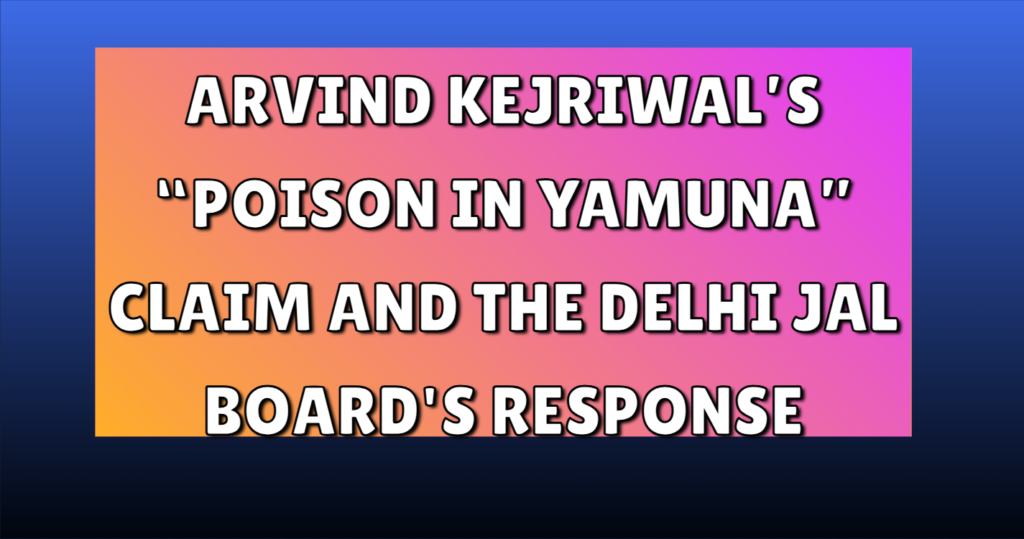Delhi’s Chief Minister, Arvind Kejriwal, has accused the BJP-led Haryana government of contaminating the capital’s raw water supply. He went as far as calling it “biological warfare”, suggesting that it could lead to mass casualties. His strong allegations have triggered intense debates, raising concerns among Delhi’s residents about the safety of their water.

The Delhi Jal Board’s Strong Rebuttal
Shilpa Shinde, CEO of the Delhi Jal Board (DJB), quickly refuted these claims. She called them “factually incorrect” and misleading, arguing that there was no evidence to support the allegations. According to her, such accusations can spread unnecessary panic and damage public trust in the water supply system. She also warned that these statements could harm interstate relations, making it harder for Delhi and Haryana to work together on solving real water issues.
Yamuna River Pollution
The Yamuna River is Delhi’s main water source, and pollution has been a long-standing problem. However, experts say that contamination is primarily due to untreated sewage, industrial waste, and agricultural runoff. Instead of political blame games, efforts should focus on cleaning the river and improving wastewater treatment to ensure safe water for Delhi’s residents.
Interstate Water Disputes
Water sharing between Delhi and Haryana has been a source of tension for decades. Delhi depends on Haryana for raw water, but seasonal shortages and pollution concerns often lead to disputes. Despite existing agreements, conflicts arise when one state accuses the other of not fulfilling its responsibilities. The latest controversy has further strained relations between the two governments.
The Impact of These Allegations
Public health concerns have escalated, with many residents fearing waterborne diseases. This could lead to an increased demand for bottled water, adding financial strain on households. Politically, the accusations have intensified the rivalry between AAP and BJP, shifting focus away from practical solutions for water management. Misleading claims also hamper cooperation between states, making it harder to address pollution issues effectively.
Solutions for Clean Water
Experts suggest that instead of politicizing water issues, both governments should focus on scientific and sustainable solutions. Investing in advanced water treatment plants, strengthening pollution control laws, and regular water quality testing can help tackle contamination problems. Encouraging interstate cooperation and raising public awareness are also essential for long-term water security.
Important Details
The controversy surrounding Delhi’s water supply highlights the complex relationship between politics, public health, and environmental issues. While Arvind Kejriwal’s claims have drawn attention to a serious concern, they must be backed by solid evidence. The real solution lies in a collaborative, science-based approach, rather than political accusations. Ensuring clean water for Delhi’s residents should be the top priority, requiring transparent governance and responsible action from all stakeholders.